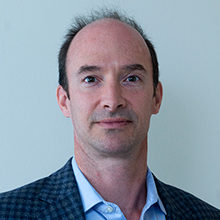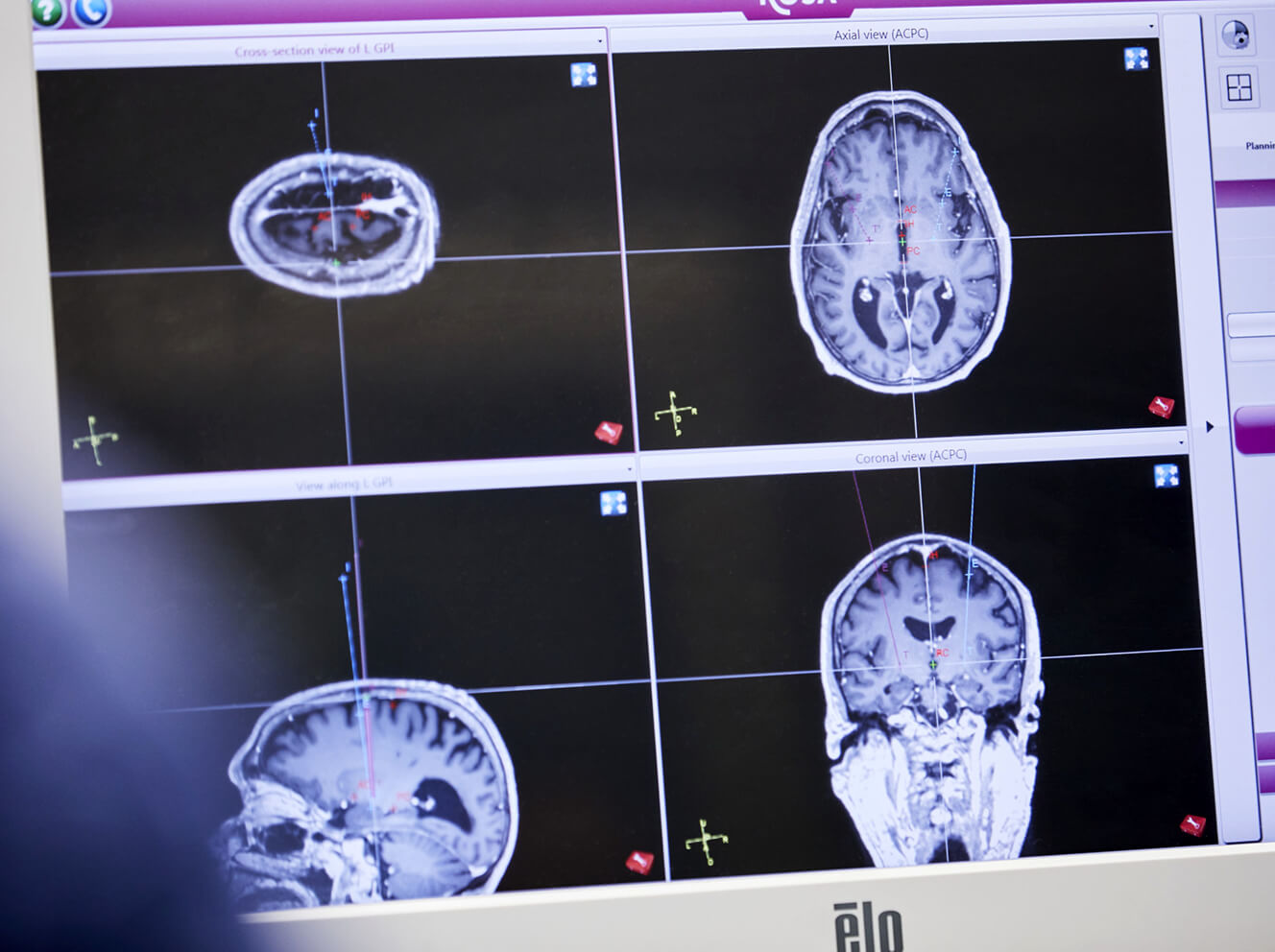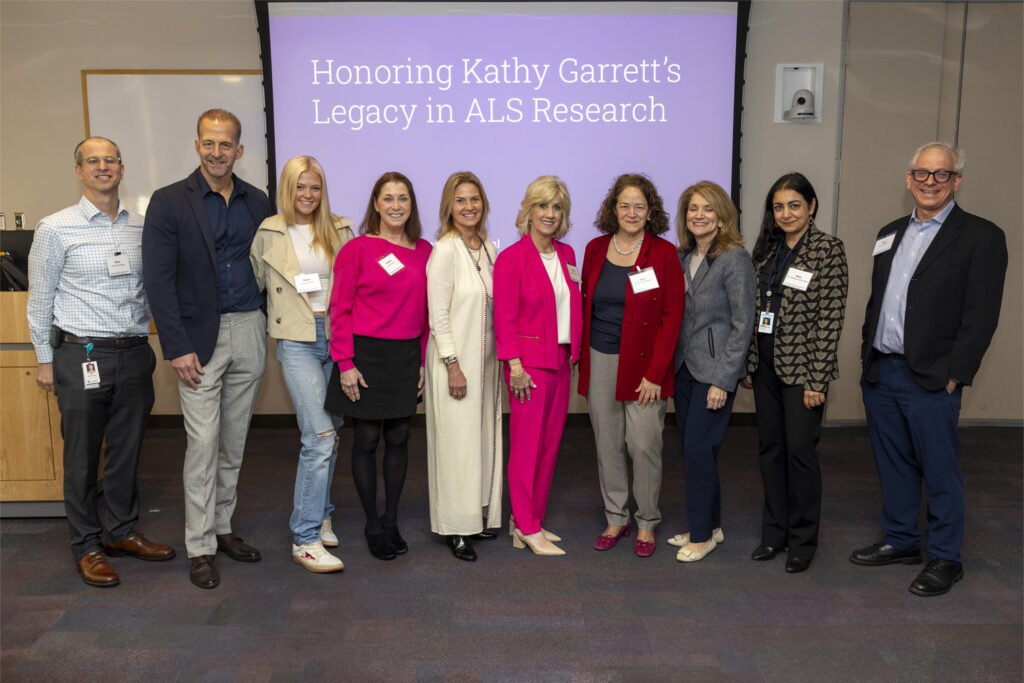Throughout the last century, science has produced many new methods to treat and prevent cancer and heart disease. But for patients facing neurological and behavioral disease, the options remain limited. Mass General Neuroscience is determined to change that.
With a network of clinicians and scientists collaborating across neurology, neurosurgery, psychiatry and radiology, the neuroscience team is developing new methods to treat neurological and behavioral diseases — in some cases before symptoms arise. By leveraging genomic research, imaging, data science and diagnostics; sharing ideas and strategies; and integrating technology, clinical expertise and knowledge of neurobiology, these teams are providing hope for individuals and families suffering from or at risk for Alzheimer’s, epilepsy, depression and more.
Protein Power Prevents Alzheimer’s
While caring for patients with Alzheimer’s disease over the past two decades, Teresa Gomez-Isla, MD, chief of the Memory Disorders Division at Massachusetts General Hospital observed that sometimes a person would present with severe Alzheimer’s pathology, including large amounts of amyloid plaques and neurofibrillary tangles, but show little evidence of dementia. The reason, she says, is the ability of these rare patients to manage inflammation. She calls this “resilience.”

“In these resilient individuals, cytokines — proteins that regulate the body’s response to infection — have a different level of inflammatory activity compared to individuals with dementia,” Dr. Gomez-Isla says. “These cytokines all have been associated with pathogen clearance and the resolution of inflammation.”
A research team led by Rudy Tanzi, PhD — who identified the first genes associated with Alzheimer’s — applied Dr. Gomez-Isla’s discoveries in a study of cytokines in healthy older adults. In partnership with Reisa Sperling, MD, and the Harvard Aging Brain Study, Dr. Tanzi’s team used annual blood tests to screen participants for the protective cytokines, and positron emission tomography (PET) brain-imaging scans to identify amyloid beta, tau tangles and other changes associated with Alzheimer’s.

In June, Dr. Tanzi published the team’s results: People whose brains had a significant burden of amyloid beta but also had high levels of the pro-inflammatory cytokine interleukin-12 experienced minor cognitive decline and fewer tau tangles. Elevated levels of the cytokine interferon-gamma also aligned with slower cognitive decline, whether or not a person had deposits of amyloid. The findings suggest these two cytokines — measured with a simple blood test — can help predict future brain health. An indicator such as the cytokine biomarker could alert a clinician to a potential problem earlier, prevent cognitive decline and improve brain function.
“All our work is done with an eye toward accelerating the development of drugs that will make a meaningful difference to our patients — slowing, reversing and, ultimately, preventing Alzheimer’s disease,” says Dr. Tanzi, who is also vice chair of neurology at Mass General, and co-director of Mass General’s McCance Center for Brain Health, which is working to make routine brain assessments part of routine primary care.
Mapping Seizure Circuits
While the causes of epilepsy remain a mystery, Mass General’s neurosurgeons, neurologists and neuroradiologists are working together to ensure a comprehensive assessment of the best treatments for both pediatric and adult patients, while moving toward a better understanding of exactly what’s happening and why.

“We are making remarkable progress in our efforts to understand seizure circuits and personalize treatments,” says Mark Richardson, MD, PhD, who directs the adult and pediatric epilepsy surgery program. “These modern approaches reduce the risk of death and prevent further physical, intellectual and social deterioration from seizures.”
Steven Stufflebeam, MD, PhD, uses the sophisticated imaging tools available at Mass General’s Martinos Center for Biomedical Imaging to better understand how the timing of neural events influences brain function and perception, in both health and disease. Through weekly conferences with the clinical team, Dr. Stufflebeam and his research group integrate information gleaned by these imaging tools to create a dynamic picture of neural events in epilepsy. Dr. Stufflebeam, Dr. Richardson and collaborators at MIT are now working to map seizure circuits by combining functional brain imaging and electrical stimulation. The information they gather will help our understanding of seizures and other malfunctioning electrical signals that occur in individuals with Alzheimer’s disease, stroke and traumatic brain injuries.

Training the Brain to Prevent Depression
An alarming surge in anxiety, depression and suicide among young people led faculty in the Department of Psychiatry to try to identify individuals who would benefit from early intervention. Strengthening an individual’s emotional resilience — their capacity to adapt and bounce back from adversity — has been shown to offer some protection against depression and is now being studied neurobiologically.
Daphne Holt, MD, PhD, director of the Resilience and Prevention Program and MGH Research Scholar 2018-2023, has been studying depression and resilience in a group of college-age students for several years. Dr. Holt teamed with Maurizio Fava, MD, psychiatrist-in-chief and director of the Division of Clinical Research in the Mass General Research Institute, to identify individuals within her study cohort who might benefit from resilience training.

Focusing on a group of non-depressed young adults with a family history of depression, the team used functional magnetic resonance imaging data to identify individuals with elevated activity in the amygdala (the section of the brain where emotions are given meaning). This elevated activity signaled that these individuals were more vulnerable to the disease. Those at-risk individuals then participated in resiliency training. Further analyses showed that a brain circuit that helps regulate emotions was significantly strengthened after training.
These findings suggest that a six-minute MRI brain scan could become a tool to identify individuals who are at risk for developing depression and who could benefit from resilience training.

“Our success with these studies, and our ability to apply these results directly to improving the health of our patients, is catalyzed by our collaborative work as part of the Mass General Neuroscience initiative,” says Dr. Fava. “We are building a coordinated system that will make our patients — from initial consultation through treatment — feel supported and well cared-for.”
To learn about how you can support the latest breakthroughs in neuroscience at Mass General, contact us.

This story is just one example of the groundbreaking efforts taking place at Mass General, home to the largest hospital-based research enterprise in the U.S. — the Mass General Research Institute. The Research Institute encompasses and provides support to thousands of scientists, hundreds of laboratories, and helps to guide, connect and promote this unrivaled community of investigators as they advance the future of medicine, from the bench to the bedside, to the community and world.





